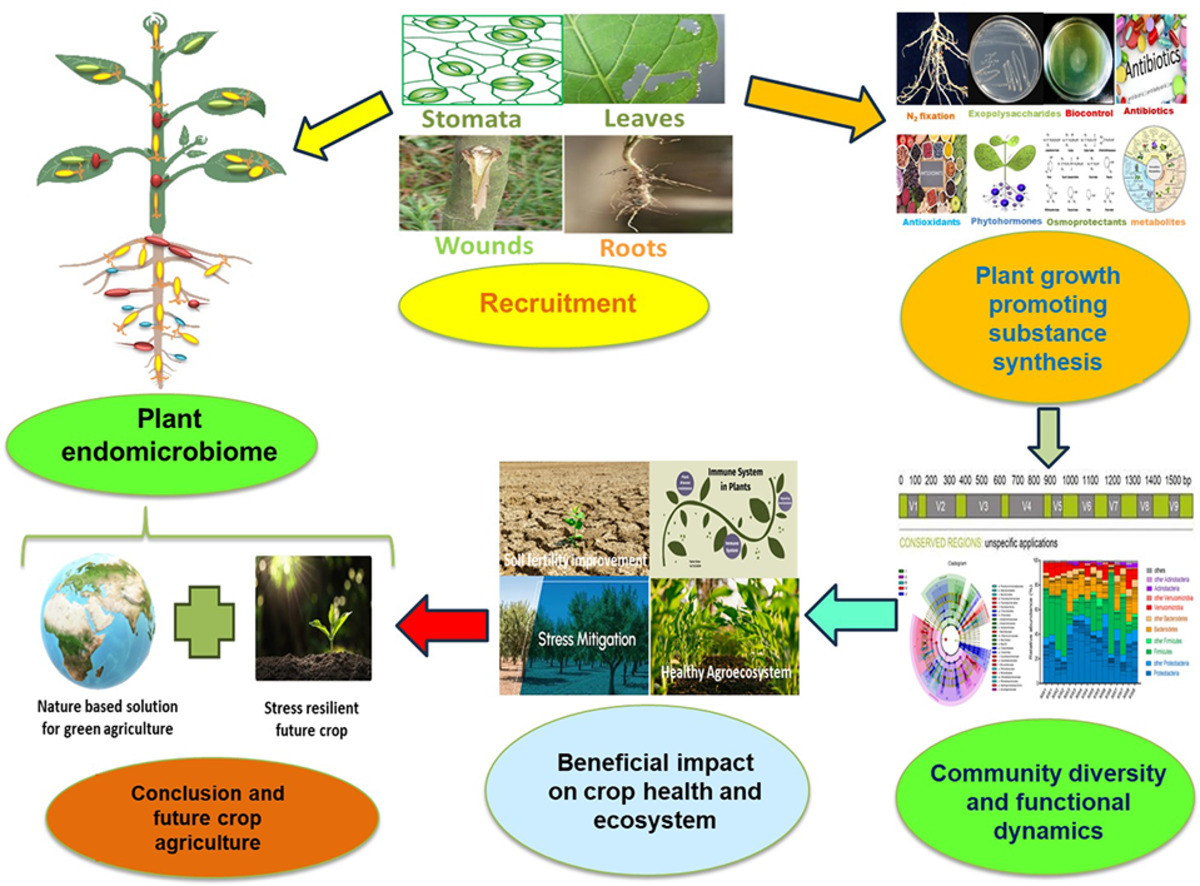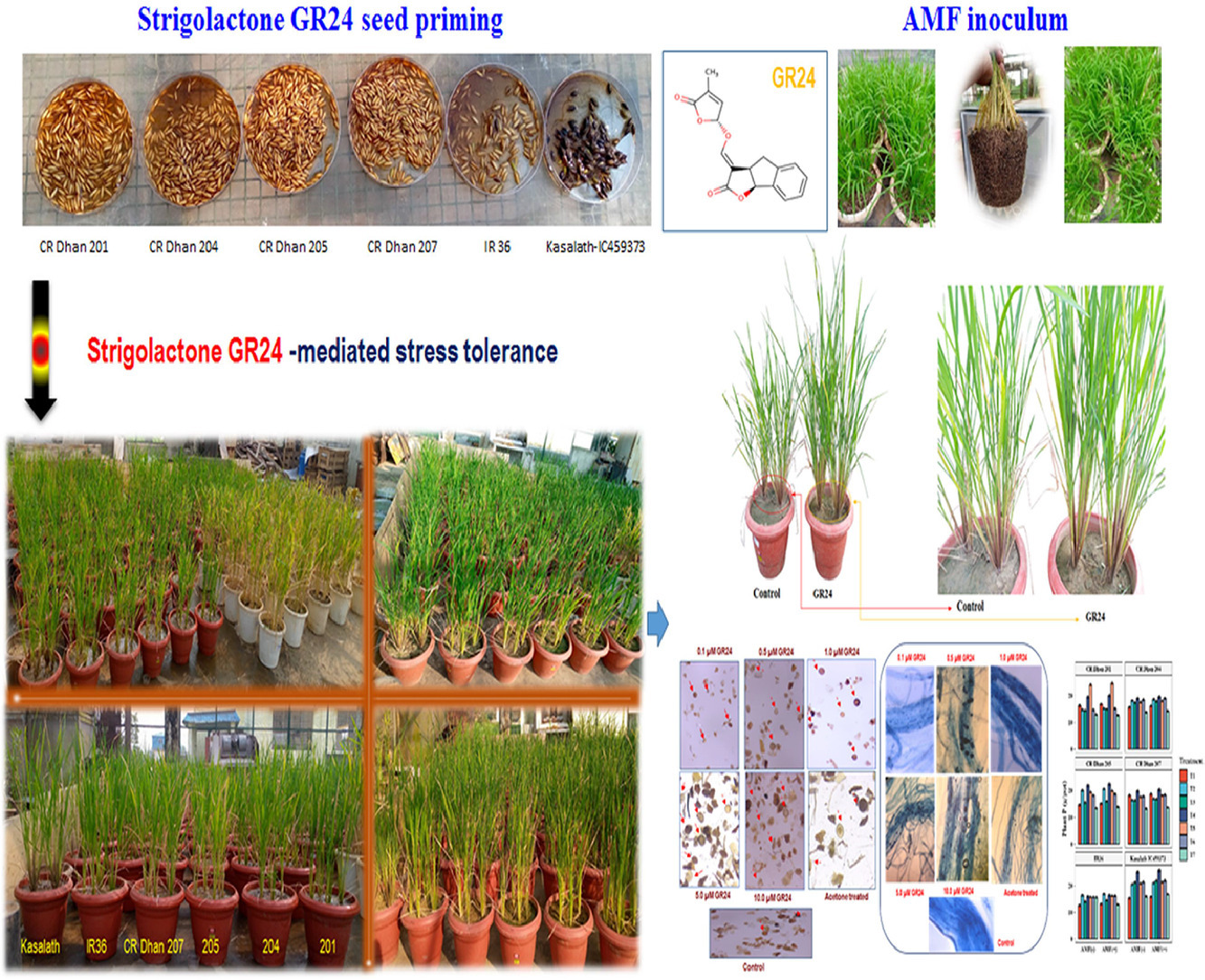Elsevier,
Current Research in Microbial Sciences, Volume 6, January 2024
Plants have a microbiome, a diverse community of microorganisms, including bacteria, fungi, and viruses, living inside and on their tissues. This review article contains deeper insight in endomicrobiome related research work in last years, recruitment, niche development, nutrient dynamics, stress removal mechanisms, bioactive services in plant health development, community architecture and communication, and immunity interplay in producing stress resilient future crop.
Elsevier,
Current Research in Microbial Sciences, Volume 6, January 2024
Strigolactones (SLs) are a new class of plant hormones that play a significant role in regulating various aspects of plant growth promotion, stress tolerance and influence the rhizospheric microbiome. GR24 is a synthetic SL analog used in scientific research to understand the effects of SL on plants and to act as a plant growth promoter.
Elsevier,
The Lancet Child and Adolescent Health, Volume 7, December 2023
In this Viewpoint, an international panel of clinicians, scientists, and community members with lived experiences of autism reviewed the challenges in identifying autism in individuals who are assigned female at birth and proposed clinical and research directions to promote the health, development, and wellbeing of these individuals.
Elsevier,
The Lancet, Volume 402, 2 December 2023
Women interact with cancer in complex ways, as healthy individuals participating in cancer prevention, as patients, as health professionals, researchers, policymakers, and as unpaid caregivers. In all these domains, women often are subject to overlapping forms of discrimination, such as due to age, race, ethnicity and socio-economic status, that render them structurally marginalized. Women, power and cancer: A Lancet Commission recommends that sex and gender be included in all cancer-related policies and guidelines, making these responsive to the needs and aspirations of women in all their diversities. It identifies ten priority actions stakeholder groups can take towards lasting and impactful change.
Elsevier,
Hygiene and Environmental Health Advances, Volume 8, December 2023
The study underscores the importance of understanding VOC emissions from flame retardant industrial parks to address potential carcinogenic risks and formulate effective reduction strategies, contributing to both Sustainable Development Goal 3 (Good Health and Well-being) and SDG 11 (Sustainable Cities and Communities).
Elsevier,
The Lancet Global Health, Volume 11, December 2023
This Article supports SDG 3 by providing robust evidence of health-care financing policies deployed by 15 countries representing all WHO regions and offering an overview and illustrative examples of the modifications made to these policies for countries to rapidly mobilise fiscal resources for health.
Elsevier,
The Lancet Global Health, Volume 11, December 2023
This Health Policy paper supports SDG 3 by calling for greater coordination and coherence using a UHC+ lens to suggest new approaches to funding that can extend beyond biomedical health services to include the cross-cutting determinants of health.


